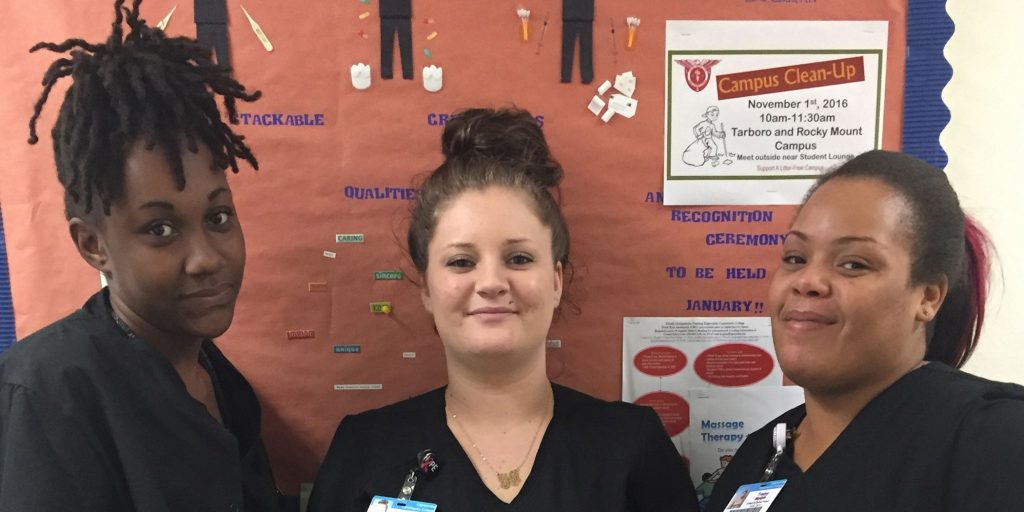Basic Skills Plus Is Training Students for the Workplace

Students representing four of the seven career pathways in College and Career Readiness Basic Skills Plus recently celebrated their attainment of various stackable credentials and pathway completion as they worked toward their high school credential. Seated from left are D’Najia Dickens, Cosmetology; Wilma Daniels, Early Childhood Education; Javares Dawes, Barbering; and Tracey Moore, Nurse Aide I. Standing are LaShawnda Washington, Basic Skills Plus instructor, and Jerry Harper, director of College and Career Readiness.
In just its third year, the Basic Skills Plus program at Edgecombe Community College is making a solid impact.
The program enables students seeking a high school diploma or its equivalent to earn an occupational credential and even work toward college credits at the same time.
Basic Skills Plus, which is a program in the Division of College and Career Readiness (CCR), began in Fall 2013. Students in the program are co-enrolled in high school courses, occupational courses, and college-level courses. Through structured career pathways, students receive industry-specific training.
Initially, the only career pathway offered was Nurse Aide I. Since 2013, career pathways have expanded to the current slate of seven. In addition to Nurse Aide I, pathways are Automotive Technology, Barbering, Certified Production Technician, Cosmetology, Early Childhood Education, and Emergency Medical Technician.

From left, Fall 2016 Nurse Aide I completers are Ebony Davis, Logan Lunsford, and Tracey Moore.
“This is an excellent opportunity for students who are looking for a pathway to employment while gaining their high school credential,” says LaShawnda Washington, Basic Skills Plus instructor on the college’s Rocky Mount campus.
Last fall, ten students completed a pathway and earned an industry credential while completing the requirements for a high school credential. This is twice the number of students who completed a pathway the previous fall.
Jerry Harper, director of College and Career Readiness, points to other initiatives under way to ensure that students are provided training opportunities while they work toward their high school credential.
The latest example is the start-up of an Integrated Education and Training (IET) class that will provide Basic Skills Plus students with basic advanced manufacturing knowledge and training.
“It is no longer enough to lead a student toward a high school credential,” Harper says. “We must ensure that all students receive career-related education and training so that their path to employment will be a successful one.”
